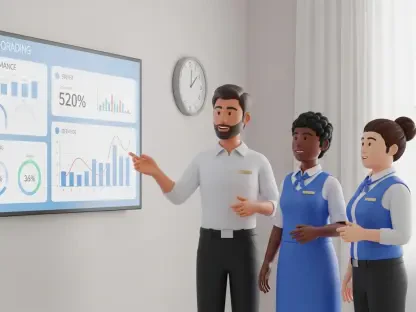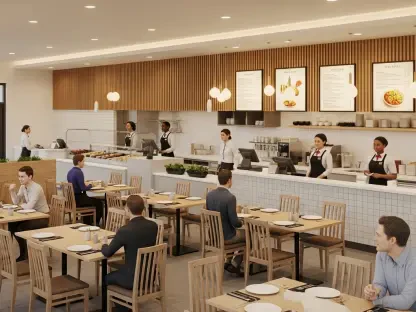In a notable shift for Newport, Oregon, the city has embarked on a revamp of its tourism marketing strategy, marking a significant departure from previous practices. For the first time in over three decades, Newport has decided to transfer its long-standing tourism promotional contract to a new entity, seeking fresh avenues for attracting visitors. The contract, worth $850,000, once managed by the Newport Chamber of Commerce, now rests in the hands of Greenhouse Collaboratives. This decision underscores Newport’s ambition to evolve its tourism approach, possibly ushering in more modern, analytics-driven strategies. With over two and a half million annual visitors, Newport’s vibrant tourism sector plays a crucial role in its economy, largely supported by a hefty transient room tax that generated $6.9 million last year. The city aims not only to enhance visitor experiences but also to foster inclusivity and environmental stewardship in its tourism offerings, raising questions about how the new partnership will navigate and fulfill these objectives.
Shifting Strategies in Tourism Marketing
The transition in Newport’s tourism marketing marks a departure from a well-established practice managed by the Newport Chamber of Commerce. For over 35 years, the Chamber led a diverse range of promotional activities under the “Discover Newport” brand, from digital outreach through social media and websites to positioning Newport as the “Dungeness crab capital of the world.” Their efforts have contributed significantly to shaping the city’s image and driving visitor growth. However, with the baton now passed to Greenhouse Collaboratives, Newport is embarking on a new chapter aimed at leveraging the company’s expertise in content creation and advanced analytics. A city council meeting on June 16 was pivotal to this decision, highlighting Newport’s intention to align with modern methodologies in tourism marketing and to boost its visitor numbers.
Greenhouse Collaboratives, although relatively unknown in Newport, has pledged to infuse its sophisticated marketing tools into the city’s promotional landscape. Their track record includes successful collaborations with other cities, bringing innovative ideas and data-driven insights to enhance tourism influx. While the Chamber ensured there would be no immediate financial repercussions from losing the contract, apprehensions linger regarding how local businesses’ voices will be represented in tourism decisions. As Greenhouse stands poised to cultivate new community connections, the focus turns to how the city will balance fresh initiatives with preserving valuable local relationships established by the Chamber over many years.
Impact on Local Business Dynamics
The decision to transition the tourism promotional contract in Newport has stirred concerns about potential impacts on local businesses and their involvement in tourism strategies. Wayne Patterson, executive director at the Chamber, expressed concerns over the dissolution of the Discover Newport Committee, which provided community oversight and involved business owners. This committee formed a platform for local stakeholders to voice opinions and influence tourism decisions. With the new contract earmarked for Greenhouse Collaboratives, business owners expressed apprehensions about losing their direct influence over tourism-related activities. This move signals a paradigm shift in local engagement, transitioning from a community participatory model to a more centralized decision-by-staff approach.
Despite these concerns, Newport’s Chamber remains undeterred in its commitment to fostering local business growth without relying on the lost tourism contract. However, the challenge lies in how Greenhouse will forge relationships with local enterprises and establish trust. The Chamber’s existing synergy and established relationships could face disruption as Greenhouse starts afresh in building similar community ties. The critical task ahead is to ensure that Newport’s tourism scene remains inclusive and reflective of its diverse local business community. Bridging any divides between locals and the new agency is crucial for harmonious collaboration and the successful progression of Newport’s tourism strategy.
Decision and Evaluation Process
The decision-making and evaluation process leading to the handover of Newport’s tourism promotion contract to Greenhouse Collaboratives was comprehensive and competitive. The city reviewed 17 applicants, subjecting them to rigorous scrutiny involving presentations and scoring evaluations. Greenhouse’s strengths were emphasized, particularly its self-sufficient content creation capabilities, robust analytics, and successful past projects with other cities. Despite the company’s base outside of Newport, its commitment to maintaining proximity with a representative spending 25% of their time in Newport was a reassuring gesture aimed at staying attuned to local dynamics and needs.
The rigorous evaluation demonstrated Newport’s proactive stance in selecting a partner best equipped to advance its tourism goals. As part of its strategy, Greenhouse plans to implement tailored marketing approaches optimized for targeting specific visitor demographics and interests. With data integrity and insightful analysis at the forefront, Newport hopes to achieve a detailed understanding of visitor behaviors and preferences, thus facilitating more personalized and effective tourism campaigns. This shift in strategy reflects Newport’s endeavor to adapt to new-age marketing norms, ensuring a streamlined tourism sector poised for sustained economic benefits.
Concluding Insights and Future Prospects
Newport, Oregon, is making a significant shift in its tourism marketing strategy by revisiting how it promotes the city, a change it hasn’t made in over 30 years. Previously, the Newport Chamber of Commerce managed the city’s tourism with an $850,000 promotional contract. However, this responsibility has now been handed over to Greenhouse Collaboratives, indicating Newport’s ambition to explore new methods to attract visitors. The city’s decision reflects a desire to adopt a more contemporary, data-driven approach to tourism. Newport sees over 2.5 million visitors annually, making tourism a vital component of its local economy. The sector thrives mainly on a transient room tax, which brought in $6.9 million last year. Newport is not only focused on boosting visitor numbers but is also committed to improving the visitor experience, promoting inclusivity, and advocating for environmental responsibility. This raises anticipation of how the new partnership will meet these diverse objectives while maintaining economic vitality.









